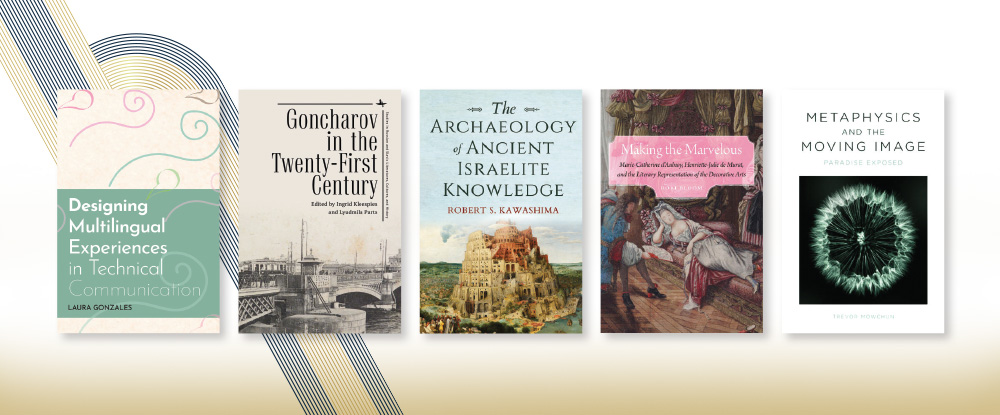The Center for the Humanities and the Public Sphere continued to support humanities book publications with its publication subvention. In collaboration with the College of Liberal Arts and Sciences and the College of the Arts, seven publication subventions were awarded during the 2021-22 academic year. Since the last annual newsletter, five new books have been published.
Rori Bloom (Languages, Literatures, and Cultures) published her monograph Making the Marvelous: Marie-Catherine d’Aulnoy, Henriette-Julie de Murat and the Literary Representation of the Decorative Arts with University of Nebraska Press in 2022.
The book contributes to the fields of fairy tale studies, French literary studies, and studies of the decorative arts in France. The book moves away from thematic concerns often analyzed in women’s writing — love, marriage — to concentrate on the authors’ aesthetic sophistication and formal experimentation. It demonstrates that these authors’ works redefine the marvelous not as magical but as manmade in order to argue that their attitude toward the supernatural is skeptical and surprisingly modern.
Laura Gonzales (English) published Designing Multilingual Experiences in Technical Communication with Utah State University Press in 2022.
The book highlights the role that language diversity plays in global research collaboration. Through three case studies in various contexts, including El Paso, Texas; Oaxaca de Juarez, Mexico; and Kathmandu, Nepal, the author encourages technical communication researchers to recognize language diversity in their work, and to collaborate with multilingual communities when designing research protocols.
Robert Kawashima (Religion) published his monograph The Archaeology of Ancient Israelite Knowledge with Indiana University Press in 2022.
The book reexamines what is generally, if misleadingly, known as the “monotheistic revolution.” Based on comparative analyses of biblical prose narrative and the myths and epics of ancient Greece and the ancient Near East, he argues that the biblical writers transformed the concepts of the divine, the human, and the cosmos, which they inherited from the surrounding cultures. Ultimately, what is distinctive about biblical narrative is not the belief in one as opposed to many gods, but the redefinition of the divine as no longer a part of nature.
Ingrid Kleespies (Languages, Literatures, and Cultures) published a co-edited book Goncharov in the Twenty-First Century with Academic Studies Press in 2021.
The volume offers a close look at the life of Ivan Goncharov (1812-91), a canonical Russian author whose career as a loyal civil servant interplayed with his significant literary output as a creative social critic to play a formative role in the development of Russian literary culture.
Trevor Mowchun’s (English) Metaphysics and the Moving Image is forthcoming with Edinburgh University Press in January 2023.
The book explores how the medium of film inherits metaphysics, the ancient tradition of Western thought, and why it does so at the very moment in history when philosophy sought to overcome it. As the age of metaphysics comes to a close with the Nietzschean “death of God” crisis of nihilism, the emergence of film gives birth to a new absolute value, a secular re enchantment of the world, or “the world in its own image.” Film radically transforms the metaphysical paradigm from rational speculation through concepts to mechanical revelation through images and sounds — a revelation vital to the capacity for the art of film to enlighten and enthrall.
